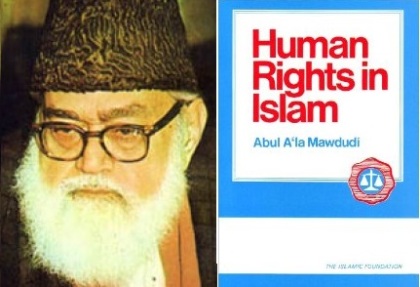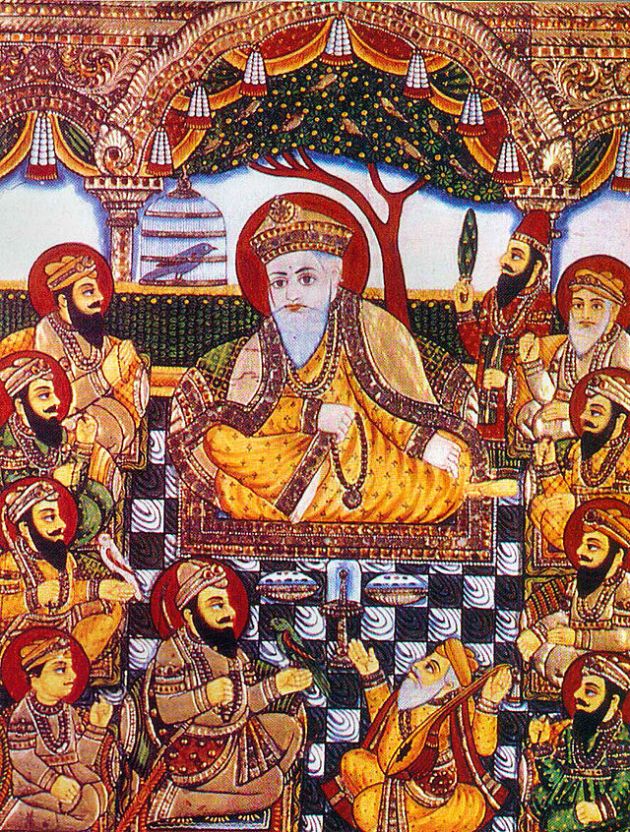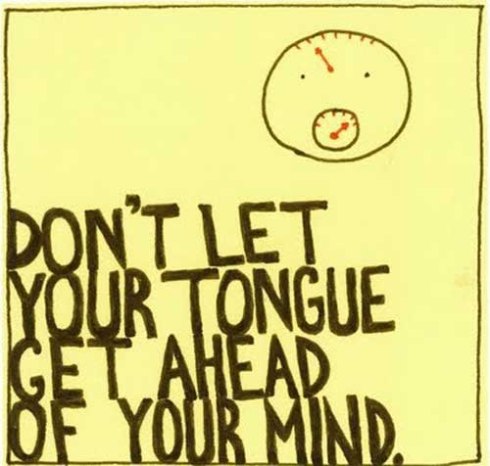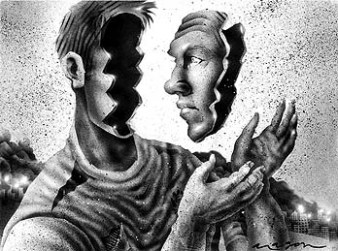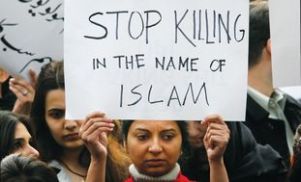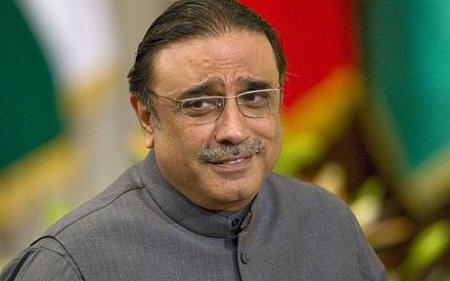(In the interest of humanity, I have decided to start uploading my term papers that I’ve written over the last four years for my undergrad. Knowledge, like joy, increases when shared. I know; you’re welcome humankind!)
No student of Political Islam, whether he likes it or not, is able to deny the momentous influence of Syed Abul Ala Maududi in the aforesaid area. He is known to have written extensively on Islam and how Islam should shape every aspect of human life. It would be safe to term him to be the most influential theologian, leader and Islamist thinker of India in the last century. The fact that his ideas have held such widespread impact makes it likely that his legacy will live on for generations to come. For the purpose of this paper, from his voluminous magnum opus, I have chosen to discuss and critique his pamphlet ‘Human Rights in Islam’ in detail. This document puts forth a doctrine which is a guideline for many Muslims who happen to be Maududi’s adherents, hence in large numbers. Human Rights is an important and widely contested issue in today’s globalized world politics. It is a generally held perception, mostly among Western audiences, that Islam is not only incompatible with human rights; rather it actively opposes the application of universal human rights. It is as though there is a tug of war going on between Islam and the West to vie as to who was the earliest indisputable pioneer of the introduction of human rights on the world stage. West tends to claim the roots of human rights in the Occidental tradition whereas Islamic thinkers seek to trace human rights back to Quran and Sunna. On one hand it is true that the ideas of ‘liberty, fraternity and equality’ emerged out of Enlightenment and French Revolution, which concurrently came about with the loosening grips of religion. On the other hand, we also see how Thomas Jefferson invoked God in the Declaration of Independence to establish the rights of humans: “We hold these truths to be self-evident, that all men are created equal, that they are endowed by their Creator with certain unalienable Rights …” Later on in West’s history, such divinely inspired claims of justice provided primary motivation for numerous progressive movements, be it the Emancipation Proclamation by Lincoln as a step towards abolishing slavery, or the civil rights movement by Martin Luther King to eliminate segregation and secure equal rights for African Americans. Muslims, on the other hand, believe that it was in fact Islam that not only introduced the idea of huquq al-insaniyya i.e., the Rights of Humans 1400 years ago, but it is till date the greatest, unparalleled proponent of human rights. The idea of invoking God as a means to achieve the ends of justice is, therefore, not new. But perhaps what irked Maududi, and other Muslim theologians, was the fact that the same powers which colonized, subjugated and plundered weaker nations at some historical juncture, now claim to be the biggest champions of equal human rights and dignity, and simultaneously malign Islam as a hindrance in reaching their ‘noble’ goals. Therefore he provided his commentary to expound on his perspective of human rights in Islam, and apparently to exonerate Islam from the charge that it is incompatible with human rights. But as an Islamist ideologue, it does not come as a surprise that his position is not one that human rights ought to determine Islamic beliefs, rather, he believes Islam should help to determine human rights. In the course of our analysis, we will examine this position and also critique the validity of the claims put forth by Maududi in his article ‘Human Rights in Islam’.
It is interesting to note that any reader who has read Maududi elsewhere, for instance his articles ‘Al-Jihad Fi al-Islam’, ‘Islamic Law and Constitution’ etc. will easily notice that Human Rights in Islam is a watered down, somewhat altered version of his otherwise rigid views on women, freedom of religion, death penalty for apostasy, individual’s rights as a citizen and so on. There appears to be an uncharacteristic clemency in his tone in this article which does not agree with his definitive, unyielding style in his other writings and statements. This could be because of two reasons. Firstly, intended target audience: Richard Bonney cites Ishtiaq Ahmed whereby he accuses Maududi of dishonesty on the question of freedom of belief in the pamphlet under discussion (207). Since this article was published in the UK, and was directed towards the Western audience, Maududi made no mention of the doctrine of apostasy, rather emphasized on the Quranic injunction that proclaims no coercion in matters of faith. Ishtiaq Ahmed notices, that in the aftermath of anti-Ahmedi riots of 1953, Maududi declared before the Court of Inquiry that apostasy was punishable by death in Islam. Secondly, political evolution: Sam Houston notices that the totalitarian, communitarian aspect of Maududi’s philosophy gradually toned down according to the exigencies of time. For instance, in ‘Islamic Law and Constitution’, which was published in 1941 before the inception of Pakistan, Maududi provided Islamic rationale for an all-powerful executive (amir) and for total subjugation of the individual to the state. Pakistan’s creation was followed by anti-Ahmedi protests spearheaded by Maududi’s party, which led the government to clamp down on the agitators; Maududi was put on trial, found guilty of sedition and sentenced to death (later the verdict was reversed). These experiences made Maududi a stakeholder, and therefore personally concerned and interested in the protection of individual rights, due process of law, and freedom of political expression. It is clear that these circumstances led to Maududi’s disillusionment with the centralization of power in the executive, thus his newfound advocacy for the importance of protecting individual freedom of conscience. At this particular juncture, he penned the pamphlet under discussion.
Like every other work by Maududi, the starting point of this essay, too, is severe condemnation of the West. The argument reminds the reader, of the logical fallacy of tu quoque which is defined as an attempt to discredit the opponent’s position by asserting the opponent’s failure to act consistently in accordance with that position. Maududi asserts that West attributes every good thing to its own conception, even though there was no Western concept of human rights before the 17th century. In same broad strokes, he also paints UN, as well as UNHR, to be a farce that has no effective moral sanctions behind it. Accusing the other of hypocrisy does not truly help buttress one’s own position; instead it only serves to make ones arguments less objectively valid and more suspect. He goes on to claim that, on the contrary, Islam ensures unalterable human rights that have been conferred by God and hence they are “applicable to every believer” and that they are not subject to “scope for any change”. This raises two important questions. Firstly, the claim that ‘human’ rights in Islam are applicable to every ‘believer’ leads one to ask whether Maududian philosophy deems non-believers to be non-humans and hence not worthy that the applicability be extended to them regardless. Secondly, the assertion that any right given by God has no scope for change assumes no scope for expansion either. These kinds of claims which discourage evolution and adaptation with changing epochal circumstances cast doubts over the claim that Islam is a religion which is meant for all times to come.
Expanding on the ‘right to life’, Maududi states that it is not permissible for anyone to kill another human, except through the due process of law (Quran 6:151). A clear case can be made that even though he did not explicitly say it, for reasons explained above; this ‘law’ is the Shariah, according to Maududi’s understanding of which, its rules about apostasy make it possible to sentence people to death. In celebrating the righteousness of Islam, Maududi does not forget to, again, revile the West terming its declarations to be hypocritical in that they are, according to him, interested in protecting the lives of their own citizens or the white race alone (he gives multiple examples such as the destruction of Red Indians in America).
Whereas Maududi has written a separate document on women: Purdah and the Status of Woman, it is interesting to note that in his pamphlet on human rights, the only right mentioned related to a woman is ‘respect for the chastity of women’. He maintains that the chastity of a woman must be respected and protected regardless of her nation or religion. Not mentioning the actual women’s rights is, again, a sign of unwillingness to broach the subject and raises the question as to whether Maududi does not reckon women important enough to be considered as bearer of basic rights. He has made his views clear in his writing whereby he believes that equality of women, such as in modern secularized societies, only leads to promiscuity and loosened family values. Riffat Hassan condemns this chastity-obsessed approach, as though chastity is the only thing worthwhile about a woman to be protected, and as though Islamists are not worried about protecting men’s chastity. Protection of chastity does not qualify as a human right; it is neither a civil nor a political right. On the contrary, it has been used as a justification by conservatives and fundamentalists like Taliban to deny women personal freedom that they are entitled to enjoy, and to keep them restricted to chaadar and chaardiwari – housebound and in purdah.
Maududi goes on to claim that the sanctity of chastity of women can be found nowhere except Islam. This is a historically flawed, sweeping claim. Kautaliya wrote Arthashastra, no later than the 2nd century AD, to illustrate the Hindu political philosophy, in which he forbids, and lays out severe punishments for, violating the chastity of female slave girls. This text was written long before Islam’s advent, but this regulation has to be among the most liberal in history, in that how it protects the chastity of female slaves; whereas Islam explicitly allowed a master to have sexual intercourse with his slave women. Maududi writes that while Western armies have always raped and abused women of their conquered lands, such thing was not perpetrated by any Muslim army. This is a flimsy argument. Mayer terms this argument by Maududi to be a “curious, contrary-to-fact assertion” and writes that “there is no evidence that Muslim armies have historically conducted themselves any better in their treatment of women… and that prostitutes have not served the needs of soldiers in Muslim armies over the centuries” (101).Crimes against women in wartime are not allowed under any legal or moral system; violations in reality have little to do with what is theoretically permissible.
When promulgating the individual’s right to freedom, Maududi starts a long exposition of how it was originally Islam, and not the West, that abolished slavery, by commanding to set the slaves free and treat them humanely. He then narrates, at length, how brutally the Europeans and Americans treated slave labour and now, with all their shameful record, they have the audacity to denounce Muslims for recognizing the institution of slavery. Slavery has now been abolished all over the globe and these kinds of arguments lack any theoretical or practical value. It is true that Islam guaranteed the lives of the slaves, but they had no property right; and Maududi’s claim that Islam has superiority over the West in abolishing slavery does not stand up to historical scrutiny. An-Na’im writes that since slavery was a norm at that time, Shariah recognized it as an institution and despite its encouragement for emancipation, “slavery is lawful under (traditional understanding of) Shariah to the present day “(172). Denigrating Western accomplishments by referring to its deviation, at different historical junctures, from modern human right standards, is akin to holding the golden age under the Prophet responsible for the malpractices that various Muslim societies over the centuries developed. This kind of smokescreen obfuscates the actual problems of oppression in the Muslim world and reflects the unwillingness to deal with them. Every civilization makes its positive contributions to the humanity and there should be no shame in recognizing West’s intellectual debt in terms of formally, legally, and irrevocably prohibiting slavery- certainly the lowest point in the history of human rights.
When Maududi talks about the right of equality of human beings, he claims that Islam enjoins absolute equality between ‘men’ irrespective of any distinction of colour, race or nationality. He cleverly evades the issue of discrimination based on gender and religion by avoiding mentioning equality in these two categories. Delling analyzes that by sidelining the rights of women and religious minorities, Maududi resorts to a “hypocritical way of allowing these discriminations to continue” (37). These two categories are omitted, in this document, in an attempt to avoid answering sensitive questions; while Maududi has made his beliefs clear elsewhere that Islam, according to him, does not deem non-Muslims fit to administer state affairs, and prohibits women to participate in public life. Bielefeldt observes that by not including gender and religion in the criteria of nondiscrimination, and by not acknowledging the conflicts between Shariah and modern human rights, Maududi has reduced his essentialist, i.e. rigid and unchanging approach to a “superficial and uncritical ‘Islamization’ of human rights” (104). Maududi opines that superiority of one man over another is “only on the basis of God-consciousness, purity of character and high morals”. This is to say that Islamic standards of virtue and duty can lead people to claim a higher degree of dignity than those who fail to meet the religious standard. Bielefeldt maintains that “such dogmatic type of reference to a divine foundation of human dignity leads to a concept that … serves as a vindication to human inequality rather than justifying universal equality of all human beings in dignity and freedom” (104).
As we have discussed before, direct confrontation with the state of Pakistan led Maududi to begin advocating certain positive freedoms such as the right to participate in the affairs of the state, and the right to protest against government’s abuses. He also stipulated certain negative freedoms such as restricting the authority of the state with respect to interfering in the sanctity and security of private life. One wonders if Maududi and his party were in a position of state power and authority – instead of the victims of it – would he still tone down on his totalitarian inclinations and declare that state cannot encroach on the privacy of individual’s life, when we are all familiar that the underlying pillar on which whole Maududian philosophy stands is his concern with shaping all the aspects of human life according to the principles of Islam. Maududi maintains that government pries on the lives of citizens who are dissatisfied with its official policies. He claims that Islam terms this to be the root cause of all mischief in politics; it makes it difficult for a common citizen to speak freely. Again, as an example of ‘mischief’, Maududi sticks to his tradition of pointing out something Western; he refers to the evil of FBI agents meant to spy on the affairs of men, which Islam is strictly against. We can argue that if prying on people’s personal lives is reprehensible, it should by extension, also render preaching and censuring others on the basis their personal morality (‘forbid evil’) in their private lives unnecessary.
Maududi takes pride in declaring that Islam allows freedom of speech, expression, and association on the condition that it is used to propagate virtue and “not for spreading evil and wickedness”. This assertion is highly problematic in that Maududi does not, at all, define the open-ended terms ‘evil’ and ‘wickedness’. This deliberate loophole opens on the state the occasion to abuse power by making easy for it to define ‘evil’ to suit its own purposes. For example Houston and Oh note that government can prevent others’ religious activities terming them ‘evil’, or a discussion group gathered to debate religious issues or the proofs of the existence of God could be labeled as spreading ‘evil’ (6). Infact any party or organization that the government deems not in its favour can be proscribed under the pretext that it is spreading ‘evil’. Maududi maintains an air of superiority in claiming that Islam’s right to free speech is better than its Western counterpart because the former categorically prohibits evil. In my opinion, the latter is more functional in that the limits on the Western freedom of speech are relatively clear and precise i.e. hate speech and libel. Whereas the lack of a concrete definition of broadly vague term ‘evil’ in Maududi’s conception can lead to significant implementation problems. Perhaps, his aim is to remain open to the limitations Shariah rules bring about with reference to blasphemy. Mayer notes that using Islamic standards of virtue to organize public life, without giving the exact meaning of the qualification, leads one to “think of Islam as a curb on rights” (76), whereas Maududi is trying to make us believe the opposite. Although Maududi encourages toleration but he also stresses upon the necessity to “enjoin good and forbid evil”. It is not difficult to foresee that by allowing all Muslims to forbid each other from evil not only leads to self-righteousness galore, but the forbiddance would tend to manifest in the most violent forms. Irene Oh notes that these two injunctions (tolerance and the duty to forbid evil) lead to inevitable tensions, and Maududi fails to provide guidance as to which principle takes precedence if the two come into conflict, for instance, when a Muslim denounces Islam (4). Moreover, forbidding evil, for most part, necessitates prying on people’s personal affairs which, as already established, is prohibited by Islam. Taking the principle of forbidding evil too far, in the modern world, seriously undermines Mill’s idea of “Over himself, over his own body and mind, the individual is sovereign.”
Maududi includes two articles maintaining “freedom of conscience and conviction” and “protection of religious sentiments” in which there is a palpable contradiction. On one hand he claims that Islam forbids harassment of the ‘people of the book’ and coercion towards them to convert to Islam. On the other hand he does not address the question of whether we can extend the right of freedom to religion to include, also, conversion from Islam to another religion. Like the rights of women, Maududi chooses to conveniently evade this contentious issue. He chose not to confess that he supported killing those who convert from Islam, to avoid undermining the credibility of his human rights scheme.
It is a curious fact to notice that in the section of ‘Rights of citizens under an Islamic State’, Maududi presents fifteen articles, some of which we have discussed; none of them deals specifically with the rights of non-Muslims under an Islamic State. Although he does mention in passing that the lives and properties of dhimmis are as ‘sacred’ as those of Muslims, and that they have the same rights as Muslims. This is a misleading statement which does not accurately reflect Maududi’s views on the subject, which he expressed in other publications. In Islamic Law and Constitution Maududi explicitly stated that non-Muslims are ‘not fit to administer state affairs’ and so they cannot be employed in government posts. He corroborates his stance by adding that if it was desirable to induct non-Muslims in state machinery, then Prophet Muhammad would have set an example by doing so. That the Prophet did not even keep one non-Muslim member in his Shura convinces Maududi to deem non-Muslims unfit to administer state affairs. This argument is again invalid, because the Prophet’s life preaching Islam spanned only over 23 years, which is a very short period of time to set examples for practically every issue that has to arise until the end of the world. If something was not the need of the hour 1400 years ago and was not implemented, does not entail that it is prohibited. I would argue that it has been historically documented that Jewish, Christian and pagan communities living in Medina were termed as part of the ‘umma’ in the first constitution scribed by the Prophet after consultation. Umma in this context held a wider connotation that signified the idea of a community living together in association (Faruki 14). If contemporary political rights are to be determined by following the examples set in Prophet’s time, will the Muslims of today be willing to also follow this example set during Prophet’s time?
The lip service of ‘equality of rights for non-Muslims’ is essentially negated when non-Muslims are denied the equality of opportunity, and are relegated to an inferior status. It is equivalent to saying that ‘we recognize your rights, your freedom of religious belief, as long as you do not meddle with the matters of the state under which you live, and remain confined to your menial jobs’. Elsewhere, Maududi also advocates the reimposition of jizya tax on non-Muslims. In Jihad in Islam Maududi writes that Islam will not interfere with the faith and rituals of non-Muslims. And then he also adds that Islam will ban usury, gambling, prostitution and all activities that it deems immoral. It will make it obligatory for even non-Muslim women to observe modesty in dress as required by Islamic Law. Does this not interfere with the rituals and norms of the non-Muslims? Maududi is silent on these matters in his Human Rights pamphlet.
Before summing up, it is important to note a palpable irony visible in Maududi’s framework: despite his bitter criticism for Western ideas, he unavoidably borrows western vocabularies to show that Islam has institutions comparable and equally ‘advanced’ as those in the West; he “ultimately mirrored those very Western paradigms he sought to oppose” (Houston 8). This tendency arises out of what French scholars have called concordisme pieux (pious harmonization), the practice involving “strained attempts by Muslims to project modern intellectual developments that have emerged outside the Muslim world back into Islamic past” (Mayer 171). Islamic scholars are inclined to do this to preserve the credentials of their religion as a ‘comprehensive ideology’ which anticipated all value achievements of modern civilization.
Moreover, Maududi’s excessive reliance on extensive quotes from the Quran indicate that his approach is to use text of Revelation as a permanent guide to law-making, not reason and the exigencies of time. Khadduri maintains that reliance on a Divine Legislator, God, who is not communicating to people through prophets anymore, to make contemporary law, makes human rights in Islam static (79). Moreover, the making of derivative laws was also prohibited by the theologians of 10th century AD which further made Muslim legal system entirely static.
As a way forward, I would propose the approach put forth by people like Mahmoud Mohammed Taha and Abdullahi Ahmed An-Na’im in the area of human rights in Islam. They honestly maintain, unlike Maududi, that instead of concealing the contradictions between Shariah and modern human rights, one should candidly confess that the contradictions exist, and strive to make an evolved and reformed Islamic law. It is possible that the proposed reform may diverge from the traditional interpretation of Shariah in its attempt to keep in line with the current times, while also maintaining its Islamic legitimacy in order to be effective in changing Muslim attitudes and policies.
Works Cited
An-Na’im, Abd Allāhi Aḥmed. Toward an Islamic Reformation: Civil Liberties, Human Rights, and International Law. Syracuse, NY: Syracuse UP, 1990. Print.
Bielefeldt, Heiner. “”Western” versus “Islamic” Human Rights Conceptions?: A Critique of Cultural Essentialism in the Discussion on Human Rights.” Political Theory 28.1 (2000): 90-121. Print.
Bonney, Richard. Jihād: From Qurʼān to Bin Laden. New York: Palgrave Macmillan, 2004. Print.
Delling, Malin. “Islam and Human Rights.” Thesis. Goteborg University Department of Law, 2004. Print.
Faruki, Kemal A. The Evolution of Islamic Constitutional Theory and Practice: From 610 to 1926 /by Kemal A. Faruki. Karachi-Dacca: National-House, 1971. Print.
Hassan, Riffat. “Are Human Rights Compatible with Islam? The Issue of the Rights of Women in Muslim Communities.” The Religious Consultation. University of Louisville, Louisville, Kentucky, n.d. Web. 29 Mar. 2014.
Houston, Sam. “The Contours of Conscience: Maududi, Freedom of Conscience,and Comparative Religious Ethics.” Southeast Regional Meeting. American Academy of Religion, Greenville, SC. 16 Mar. 2013. Academia.edu. Web. 29 Mar. 2014. <http://www.academia.edu/4402914/ >.
Kautalya. The Arthashastra. India: Penguin, 1992. Print.
Khadduri, Majid. “Human Rights in Islam.” Annals of the American Academy of Political and Social Science 243 (1946): 77-81. Print.
Maududi, Syed Abul A’la. Human Rights in Islam. Leicester: Islamic Foundation, 1976. Print.
Maududi, Syed Abul A’la. Jihad in Islam. Lahore: Islamic Publications (Pvt), 1990. Print.
Maududi, Syed Abul A’la. The Islamic Law and Constitution. Lahore: Islamic Publications (Pvt), 1990.
Mayer, Ann Elizabeth. Islam and Human Rights: Tradition and Politics. Boulder, Co.: Westview, 1991.
Oh, Irene. Islam and the Reconsideration of Universal Human Rights. May 2005. Essay by Assistant Professor. University of Miami, Florida, USA.
